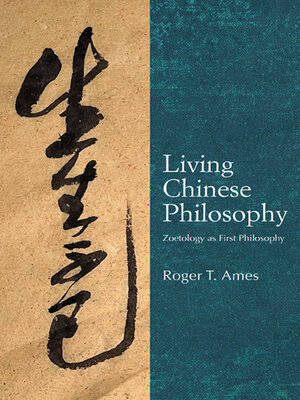Living Chinese Philosophy
ebook ∣ Zoetology as First Philosophy · SUNY Series in Chinese Philosophy and Culture
By Roger T. Ames

Sign up to save your library
With an OverDrive account, you can save your favorite libraries for at-a-glance information about availability. Find out more about OverDrive accounts.
Find this title in Libby, the library reading app by OverDrive.



Search for a digital library with this title
Title found at these libraries:
| Loading... |
In Living Chinese Philosophy, Roger T. Ames uses comparative cultural hermeneutics as a method for contrasting classical Greek ontology ("the science of being in itself") with classical Chinese "zoetology" ("the art of living"), which is made explicit in the Yijing 易經 or Book of Changes. Parmenides, Plato, and Aristotle give us a substance ontology grounded in "being qua being" or "being per se" (to on he on) that guarantees a permanent and unchanging subject as the substratum for the human experience. This substratum or essence includes its purpose for being (telos) and defines the "what-it-means-to-be-a-thing-of-this-kind" (eidos) of any particular thing, thus setting a closed, exclusive boundary and the strict identity necessary for a particular thing to be "this" and not "that." In the Book of Changes, we find a vocabulary that makes explicit cosmological assumptions that are a stark alternative to this substance ontology. It also provides the interpretive context for the canonical texts by locating them within a holistic, organic, and ecological worldview. To provide a meaningful contrast with this fundamental assumption of on or "being," we might borrow the Greek notion of zoe or "life" and create the neologism "zoe-tology" as "the art of living" (shengshenglun 生生論). This cosmology begins from "living" (sheng 生) itself as the motive force behind change and gives us a world of boundless "becomings": not "things" that are but "events" that are happening, a contrast between an ontological conception of human "beings" and a process conception of what the author calls human "becomings."






